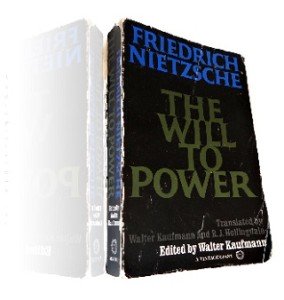
The will to Power
Power is the logic for many peoples, happiness no. 
Power Will or Power (“Der Wille zur Macht”) is a concept of Nietzsche’s philosophy that is used as the basis in the construction of all his thought, for he is in everything in life, not only in organic life, Ranging from chemical reactions to the human psyche.
Teilhard Chardin gave another name that was the idea of vitalization, that is to say, the life more and more complex, and the man is the maximum of the complexification of the life, occurs by a process of cerebralización, and that means that we are in “evolution”, but not necessarily in power.
Thomas Aquinas, spoke of act and power and potency and what “virtually” is contained in the act, for example, we planted a seed and it is virtually a tree. Our contemporary problem, reflected in every Western civilization in particular, but on the whole planet, is whether our present process of empowerment in the sense of development is corresponding to a general happiness, that is, are we happy?
Certainly all humanity would say no, one of the contemporary diseases was stress, it became the panic syndrome, and depression gives signs of growth as frightening as other physical illnesses such as cancer and AIDS.
But Nietszche’s hypothesis contrasts with modern quantum physics, since his first assumption is that the total force that exists in the universe is determined, not infinite, while astrophysics is confronted with an expanding universe with forces not yet measured due to black holes.
But from Nietzsche’s theory it is reduced that the number of situations, and the combinations of these forces are measurable, that is, also determinate and finite, as is supposed in the Laplacian universe, and it is not the same universe as Einstein and Heisenberg.
In Nietzsche’s terminology the Will to Power is an original law, without exception or transgression.
Thus in the philosopher’s words the Will to Power is not something created, or depends on special conditions, as in religion or previous theories, but it comes from the very reality of things, so it is necessary, as presupposes Husserl’s phenomenology to Things themselves, to determine what they really.
NIETZSCHE, Friedrich. The will to power. Tradutor to Walter Kaufmann e R. I. Hollingdale. Nova York: Vintage Books. , 1968.









